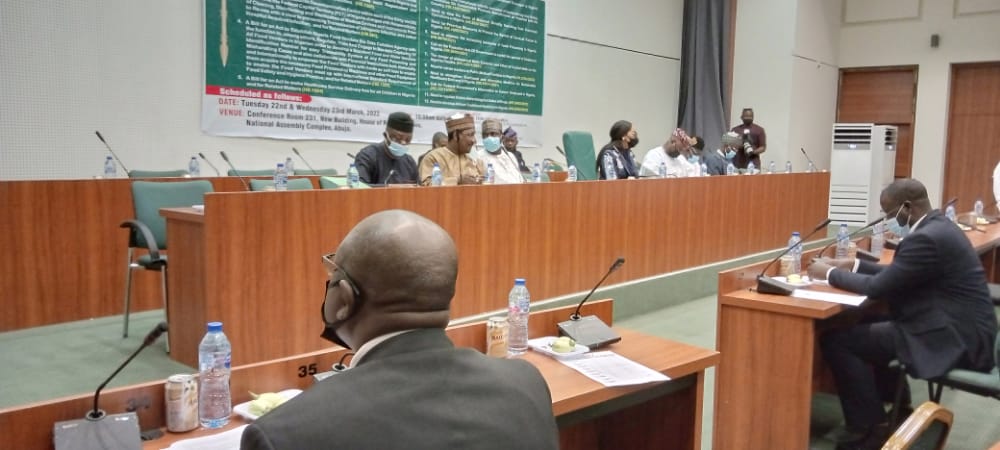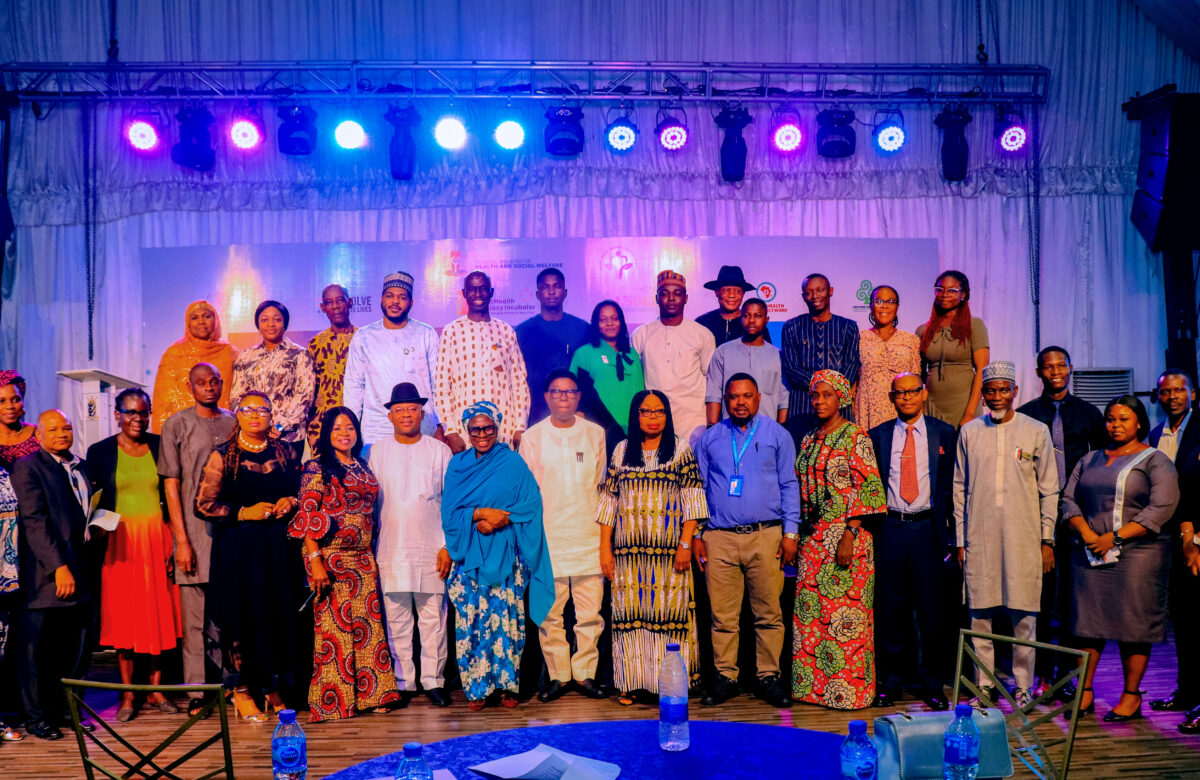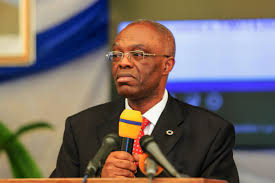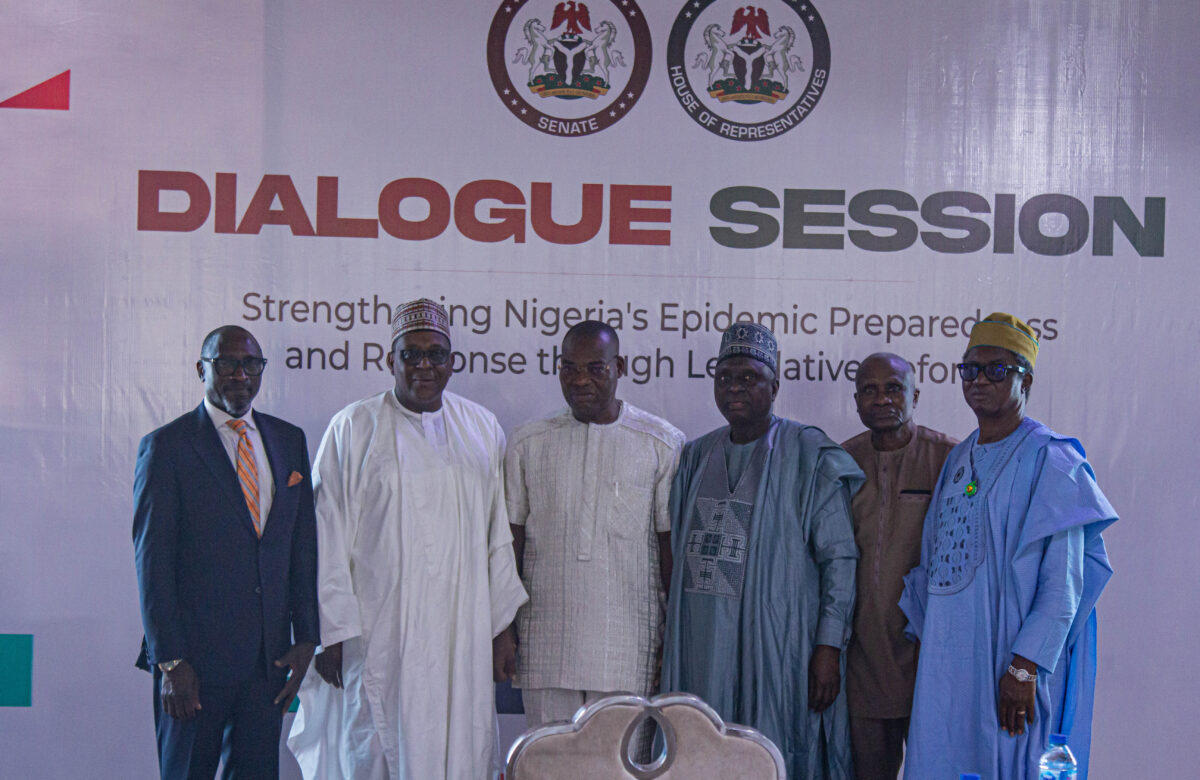
House Committee on Healthcare Services Holds Public Hearing on Five Bills and Twelve Motions
- Health SectorHealth SecurityHuman Capital Development (HCD)Legislature
- No Comment
- 907
The House Committee on Healthcare Services held a public hearing on 5 Bills and 12 Motions/Resolutions; four of the Bills seek establishment of new agencies while the 5th is to make healthcare service delivery free for all Children in Nigeria:
a) A Bill for an Act to Establish the Public Health Practitioners Council of Nigeria;
b) A Bill for an Act to Establish Minimum Standards for Healthcare Facilities to Provide Basic Standards to be Observed by Operators of Healthcare in Nigeria;
c) A Bill for an Act to Establish Decontamination Centers within each of the Thirty-six (36) States and the Federal Capital Territory (FCT) of Nigeria;
d) A Bill for an Act to Establish Nigeria Food Vendors Biodata Collation Agency; and
e) A Bill for an Act to Make Healthcare Service Delivery Free for all Children in Nigeria.
While the Motions and Resolutions considered were:
a) A call to formulate a tax policy on Sugar-Sweetened Beverages in Nigeria.
b) Need to enforce compliance with the inclusion of health / dietary and safety information on consumable products manufactured or imported into the country.
c) Need to stop spate of maternal mortality resulting from caesarian operations in Nigeria.
d) Need for proactive measures to prevent the spread of cervical cancer in Nigeria.
e) Need to address the increasing incidents of food poisoning in Nigeria.
f) Call on the Executive Arm of Government to curtail the spread of cholera in Nigeria.
g) The danger of widespread meth epidemic and effect of crystal meth on Nigerian Youth.
h) Need to re-train workers in public medical facilities in Nigeria.
i) Need to strengthen Traditional and Alternative medicine for sustainable healthcare delivery in Nigeria.
j) Call for Federal Government’s intervention in cancer treatment in Nigeria.
k) Need to regulate online advertising and sale of drugs.
l) Need to develop African Traditional medicine in Nigeria.
The Hearing
a) A Bill for an Act to Establish the Public Health Practitioners Council of Nigeria charged with the responsibility of advancing the study, training and practice of public health management and administration in Nigeria. This Bill was rejected by stakeholders at the public hearing. They stated that the bill is a duplication of efforts and in conflict with the respective acts establishing the Nigerian Center for Disease and Control (NCDC), National Primary Healthcare Development Agency as well as Africa Institute of Public Health Practitioners. According to them, creating another agency will further add to the cost of governance and proliferation of councils, boards, or agencies whose functions have already been taken care of by the provisions of the acts establishing the agencies mentioned above. It was therefore considered that the Bill is not necessary and should be stepped down.
b) A Bill for an Act to Establish Minimum Standards for Healthcare Facilities to Provide Basic Standards to be Observed by Operators of Healthcare in Nigeria and Empower the Federal Ministry of Health to Enforce such Registration and Nationwide Compliance. Participants at the hearing rejected the Bill; that it is a duplication of efforts and runs contrary to the existence of National Primary Healthcare Development Agency (NPHCDA). They also stated that in 2017, the Federal Ministry of Health inaugurated the first National Tertiary Health Institutions Standards Committee that was saddled with the responsibility of advising the Ministry/Minister on the matters affecting the establishment of tertiary institutions in Nigeria, establishing the minimum standard for tertiary health institutions in Nigeria, and conducting relevant investigations and recommendations to the Federal and State Government on tertiary healthcare services in the nation’s interest. The Bill was therefore considered to be stepped down.
c) A Bill for an Act to Establish Decontamination Centers within each of the Thirty-six (36) States and the Federal Capital Territory (FCT) of Nigeria charged with responsibility of cleaning, disinfecting and sterilization of medical devices and instruments prior to re-use with a view to preventing transmission of latrogenic infection also called Hospital Acquired Infection was also rejected by participants at the public hearing with the opinion that the Bill will add to the cost of governance by creating another agency.
d) A Bill for an Act to Establish Nigeria Food Vendors Biodata Collation Agency with the function to, among others, regulate, train and engage in bio-data capturing of all food vendors in Nigeria in order to develop a standard food and water vendors identification number for easy traceability. This would cover any food poisoning and mishandling cases and also collaboration with financial institutions both nationally and internationally to empower the food vendors with funds as soft loans to enable them acquire the necessary food processing machines and other food equipment necessary for international standard requirements. Majority of the participants at the public hearing supported this Bill, but a small percentage of participants had contrary views that the functions the Bill intended to carryout overlap with existing government agencies and extant laws. They stated that food issues are matters that are legislated over at the state level, thus, a federal agency cannot be constitutionally empowered or established to oversee food vendors across the country. This is the sole responsibility of state and local governments. The Bill is therefore in contradiction with the Federal Ministry of Health National Policy on food safety structure.
e) A Bill for an Act to Make Healthcare Service Delivery Free for all Children in Nigeria was also rejected by participants. They said with the current realities, economic challenges and dwindling funds, it would be difficult to have free healthcare services for children. According to stakeholders at the hearing, there should be public enlightenment to get every child enrolled in the National Health Insurance Scheme which provides healthcare services at subsidized rates.
All the motions and resolutions were supported by the participants at the public hearing.
Contributed by Philip Akoso (LISDEL)





